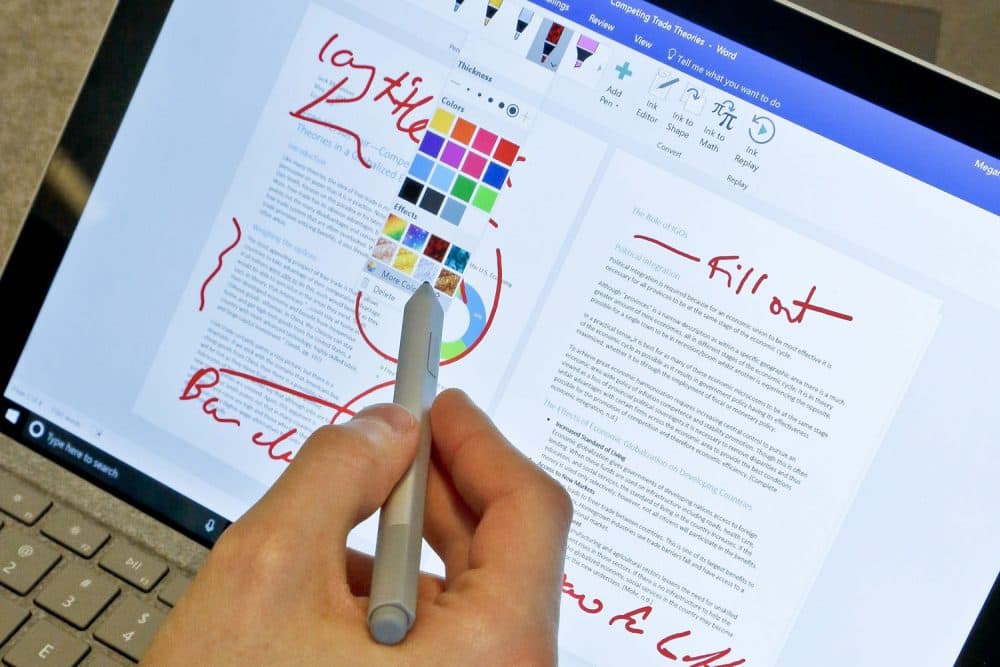Advertisement
Limit Kids' Screen Time By Unplugging. Literally.
Resume
One of the joys of a show like On Point, where we take live callers from around the country, is that they're not just asking us questions so we can share wisdom from on high.
They're very often sharing pearls of wisdom themselves.
Take Chad from Rhode Island, who called into our show about balancing family time and screen time Tuesday.
Chad got this idea from his friends. Our guest, NPR education blogger Anya Kamenetz, who's written an entire book on the subject, hadn't heard of it, but loved it.
Chad's 9- and 12-year-old daughters have tablets. But they only get to charge them once a week, on Sundays. When the battery dies, tablet time is over.
"If they get caught trying to charge it themselves they lose it for the rest of the week," Chad said. "But they haven't done that because they know the consequences."
Kamenetz said the idea is particularly good because it will help them with time management skills. If they stream video onto their tablets, the battery will die quickly. But if all they're doing is reading, it'll last longer.
"I've never heard it," Kamenetz said, but "I'm going to tell everyone about it."
Kamenetz's thesis is that you can balance screen time and family time: limit it, and do it together.
Successive generations have been warned about the parade of horribles that would come from new innovations, from the telegraph to the radio. There are studies that show problems, Kamenetz said, and caution is warranted.
But we don't have to be Luddites.
"I’m tired of that story," Kamenetz said. "As much as it raises anxieties and there are real issues, falling into that narrative is just a little too easy.”
You can find a link to an excerpt of her book, "The Art Of Screen Time," here.
This segment aired on January 30, 2018.